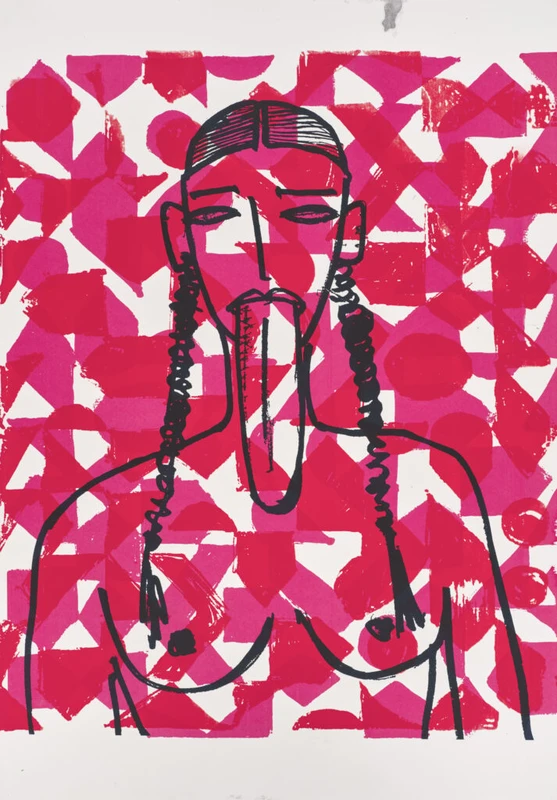Osman Yousefzada
23 Sep 2023-14 Apr 2024


From large-scale textile works to prints and drawings, Osman Yousefzada’s work engages with the representation, rupture and reimagining of the working class migration experience.
This solo exhibition of work by the British-born South Asian artist features brand new artworks on public display for the first time – including a new series of works on paper.
The prints are partly inspired by characters in the Falnama, book of omens used by fortune tellers in Iran, India and Turkey during the 16th and 17th centuries. People seeking insight into the future would turn to a page of the Falnama at random, and interpret the text and colourful drawings to predict their future. Yousefzada creates these prints as talismans or magical objects that protect or heal and work as guardians of the immigrant experience.
A new series of large-scale textiles titled ‘Queer Feet’ will also be on display. These textile works represent defiant queer bodies and are embroidered with found objects and Afghan rugs, reflecting Yousefzada’s own cultural heritage, his search for a place to belong and paying homage to his mother, who was a talented maker.
A gifted storyteller, Yousefzada’s work merges autobiography with fiction and ritual.
Osman Yousefzada
Yousefzada is a research practitioner at the Royal College of Art, London and a visiting fellow at Cambridge University. He is also commencing a role at the Birmingham School of Art in September 2023, as Professor of Interdisciplinary Practice. His work has been shown at notable international institutions including: Whitechapel Gallery, London; Ikon Gallery, Birmingham (solo 2018); Museum of Contemporary Art, Sydney; Wapping Project, London; Cincinnati Art Museum, Ohio; Ringling Museum, Florida; Lahore Museum, Pakistan; Design Museum, London; Lahore Biennale, Pakistan; and Dhaka Art Summit, Bangladesh.
In his first book, ‘The Go-Between’ (2022) published by Canongate, is set in a closed immigrant community in Birmingham in the 1980s and 1990s. The book explores alternative masculinities competing with strict gender roles, seen through the eyes of a child. This book was long listed for the Polari Prize, winning the Biographers Club Prize and reviewed by Stephen Fry as ‘one of the greatest childhood memoirs of our time’.
This exhibition takes place at Charleston in Firle